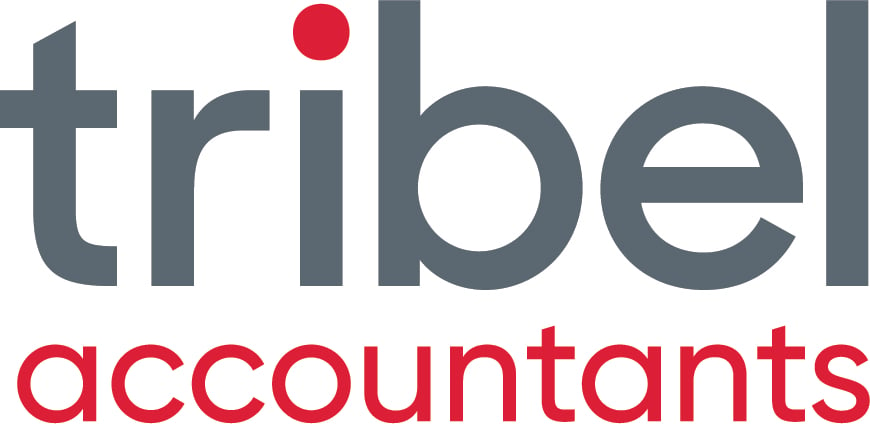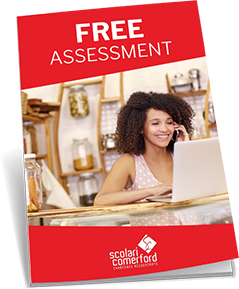INTRODUCTION
As small business accountants, it's natural for clients to ask how they can reduce their tax bill. It's fair to say that if we are doing our job properly then it's important we ensure you are paying the minimum amount legally as possible.
Here are 5 key things you should be doing to minimise your exposure.

Figure 1: Don't get tangled up in a mess! Being organised will minimise your tax. Photo courtesy Balmain Baz & Lara Scolari Gallery
Tip #1 Get tax planning done each year
In March or April of each financial year, it's a great idea to meet with your small business accountant and find out what your position is at that point for the current financial year and after estimating income and expenses for the rest of the financial year, establish what your taxable income will be if you don't do anything.
To be up with the best accountant with the client's interests at heart, most small business accountants will contact you and get you come in and do the above. There is nothing worse seeing a client after financial year and doing their returns knowing that if they had have done some tax planning the result could have been much less to pay!
A number of options can then be offered to you regarding what can be done to minimise tax. Wherever possible you should try to defer income and bring forward expenses but there are rules around how you can do this. Small businesses with turnover of $2,000,000 or less typically have access to a number of options that might not be available to larger businesses.
If you have your accounting system on the cloud, this should make it easier to have these types of conversations with your accountants Sydney.
Remember that once 30 June is past, it's generally too late to fix a problem. The sooner you understand where you are at, taxation wise before the end of the financial year the better.
Another thing to remember is that planning normally means having to have cash flow to pay the extra deductions or defer income. If you have a cash flow forecast or three way budget, you should be able to check to see if you can fund your minimisation strategies.
Warning: Always ensure that your accounting system's opening balances on 1 July agree with the financials prepared by your accountant. Failure to do this can lead to incorrect taxation planning estimates.
Tip #2 check you have the right structure
Your small business accountant should be able to advise you whether you have the best structure for asset protection and taxation purposes. For some, a simple partnership can be effective but for those that have families, a family trust can be a very effective structure for taxation purposes and allow you to split profits over various family members, usually resulting in much less taxation.
A company structure can technically minimise your taxation to 30% and you can take advantage of getting the franking credits your company has already paid but like everything seek good advice.
Setting up a structure can be complicated and expensive both initially and ongoing. You need to weigh up the benefits of all things including asset protection. You need to do the numbers as in some circumstances it maybe better to pay a little more to the ATO instead.

Figure 2: There's nothing worse than having to pay too much!
Tip #3 understand superannuation & self managed superfunds
Superannuation is a complex beast but can be a very effective way to limit your ATO bill. Whether it's putting extra contributions in at the end of financial year or setting up a self managed superfund and transferring business property such as buildings used by your business (beware of capital gains and stamp duty issues although these can also be minimised very effectively in some instances), this is an area that should always be considered to keep assessments down.
tip #4 maintain evidence
Ensure you keep all dockets, invoices, log books etc in a safe place so you can produce them if required in the event of an audit.
Your accountants Sydney should always check the ATO's website to see if your numbers are in line with any benchmarks they produce for your industry. If they aren't, you can expect an audit in the near future.
Tip #5 ensure interest debt is deductible where possible
Have you looked at how your loans are currently set up? Do you need to see if they can be set up more effectively so that you can make greater claims on your interest deductions?
It is not ideal if you are considering buying a new home to live in with debt but have no or little finance on your old property which is going to be rented out. You would need to take a number of factors into account including buying and selling costs, whether the old property might jump in value soon etc but you might be better off to sell it, put the proceeds to the new home you intend to live in and then borrow for a new rental property so you can claim a higher amount of interest.
Get an accountant to review your current debt structure and see if it can be arranged so that you maximise your deductions moving forward.

Figure 3: Have you set your loans up correctly between private & business?
CONCLUSION:
Getting proactive advice about tax is all part of getting a greater return on your business investment. Preserving profits through lower taxation will allow you to reinvest more back into the business which should improve not only future profits but also allow you to get a higher business valuation on sale.
They say in life the only certainties are death and taxes but that doesn't mean you have to pay more than you need to!


.png?width=100&height=100&name=COVID_Safe_Badge_Digital%20(002).png)




